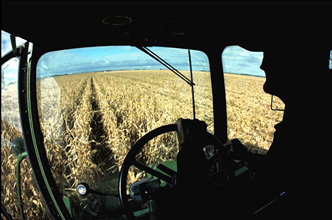| Sustainable Food Guide | Environmental Practice at Work © 2005  |
Issues | GM & Ownership... The term "intellectual property" refers to a group of laws - such as patents, plant breeders' rights, copyright, trademarks and trade secrets. These laws were developed to protect inventors inventors and artists from losing control over their intellectual creations - their ideas. These laws are now being used to own the "new" genes - although the genes are not new. They may have been nurtured and protected by local people for many years. These same people may be excluded from the ownership and have to buy the new seeds. Intellectual property has become a powerful tool to consolidate market power. According to Rural Advancement Foundation International, such control over plants, animals and other life forms jeopardizes world food security, undermines conservation and use of biological diversity. It alsp threatens to increase the economic insecurity of farming communities, particularly when farmers have to purchase new seed every year, rather than collect and swap seed. "'When RAFI started some 20 years ago there were about 7000 seed companies in the world market reaching 1% of the market. Now 20 years after that, there are about 10 seed companies who really dominate the market and together they have the control of more than 40% of the world market." They state that the top five gene giants (Zeneca, DuPont, Monsanto, Novartis, and Aventis) now dominate a third of the global seed trade, two-thirds of agrochemicals (or agrotoxins) and pharmaceuticals and 100 per cent of the genetically modified organism (GMO) trade. These companies want to own as many potentially useful genes as possible - wherever they may be in the world. UPOV is the main intergovernmental body to protect New Varieties of Plants and organise conventions on intellectual property - More. The WTO Agreement on Trade-Related Aspects of Intellectual property rights (TRIPs) sets out minimum standards of intellectual property protection. There is less and less state sponsored agricultural research throughout the world. More and more agricultural research is carried out by 'life science' companies - who want to own the products of their research. The scienc of genomics - sometime called Marker Assisted Breeding is in the public domain. Genomics enables traditional crossing, the difference being that we can see what the new plants can do immediately without growing them for years. It is a bot like a pack of cards being dealth with the cards turned over so you can what is going on. The Soil Association is happy with MAB.
| |||||||
| Photos courtesy of http://www.usda.gov |


